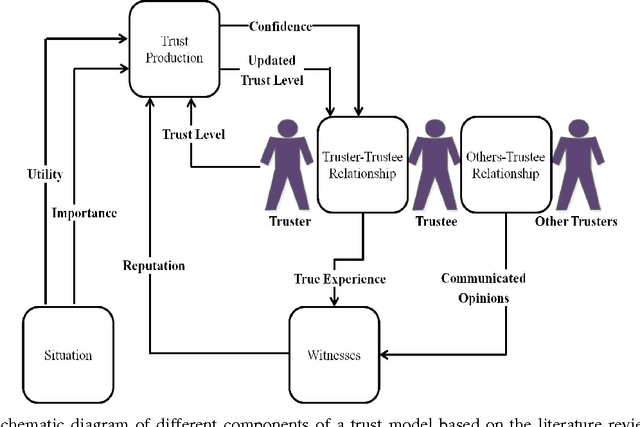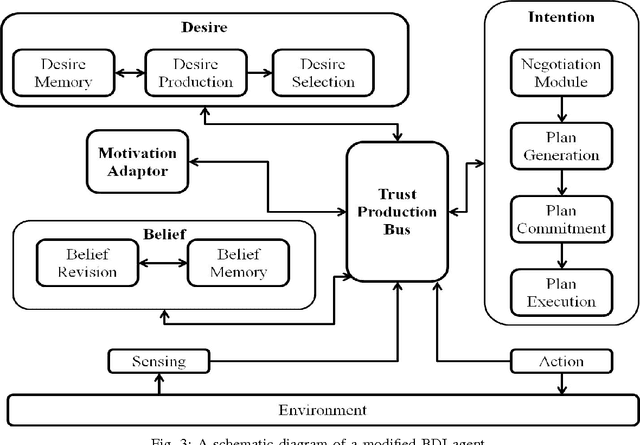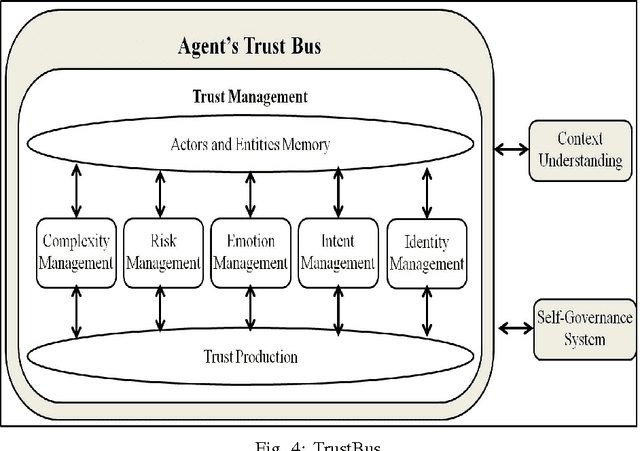Kathryn Merrick
Intrinsically Motivated Hierarchical Policy Learning in Multi-objective Markov Decision Processes
Aug 18, 2023



Abstract:Multi-objective Markov decision processes are sequential decision-making problems that involve multiple conflicting reward functions that cannot be optimized simultaneously without a compromise. This type of problems cannot be solved by a single optimal policy as in the conventional case. Alternatively, multi-objective reinforcement learning methods evolve a coverage set of optimal policies that can satisfy all possible preferences in solving the problem. However, many of these methods cannot generalize their coverage sets to work in non-stationary environments. In these environments, the parameters of the state transition and reward distribution vary over time. This limitation results in significant performance degradation for the evolved policy sets. In order to overcome this limitation, there is a need to learn a generic skill set that can bootstrap the evolution of the policy coverage set for each shift in the environment dynamics therefore, it can facilitate a continuous learning process. In this work, intrinsically motivated reinforcement learning has been successfully deployed to evolve generic skill sets for learning hierarchical policies to solve multi-objective Markov decision processes. We propose a novel dual-phase intrinsically motivated reinforcement learning method to address this limitation. In the first phase, a generic set of skills is learned. While in the second phase, this set is used to bootstrap policy coverage sets for each shift in the environment dynamics. We show experimentally that the proposed method significantly outperforms state-of-the-art multi-objective reinforcement methods in a dynamic robotics environment.
A Review of Theoretical and Practical Challenges of Trusted Autonomy in Big Data
Mar 16, 2016



Abstract:Despite the advances made in artificial intelligence, software agents, and robotics, there is little we see today that we can truly call a fully autonomous system. We conjecture that the main inhibitor for advancing autonomy is lack of trust. Trusted autonomy is the scientific and engineering field to establish the foundations and ground work for developing trusted autonomous systems (robotics and software agents) that can be used in our daily life, and can be integrated with humans seamlessly, naturally and efficiently. In this paper, we review this literature to reveal opportunities for researchers and practitioners to work on topics that can create a leap forward in advancing the field of trusted autonomy. We focus the paper on the `trust' component as the uniting technology between humans and machines. Our inquiry into this topic revolves around three sub-topics: (1) reviewing and positioning the trust modelling literature for the purpose of trusted autonomy; (2) reviewing a critical subset of sensor technologies that allow a machine to sense human states; and (3) distilling some critical questions for advancing the field of trusted autonomy. The inquiry is augmented with conceptual models that we propose along the way by recompiling and reshaping the literature into forms that enables trusted autonomous systems to become a reality. The paper offers a vision for a Trusted Cyborg Swarm, an extension of our previous Cognitive Cyber Symbiosis concept, whereby humans and machines meld together in a harmonious, seamless, and coordinated manner.
 Add to Chrome
Add to Chrome Add to Firefox
Add to Firefox Add to Edge
Add to Edge